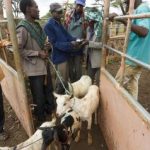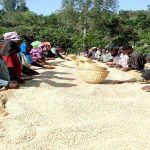Reposted from NIPN Website. The Ethiopian Public Health Institute (EPHI), the International Food Policy Research Institute (IFPRI), and the Ethiopia National Information Platform for Nutrition (NIPN) co-hosted a webinar on “The Productive Safety Net Program and the Agri-Food System in Ethiopia: Key Outcomes and Challenges” on 9 June 2021. Introduction: Dr. Aregash Samuel, Deputy Director […]
SMALLHOLDER AND AGRIFOOD SME RESILIENCE TO SHOCKS
Farmers and food businesses have shown both great vulnerability to and capacity to adjust to a major shock like COVID-19. Read Blog Post.
Global Food Policy Report 2021: Food system transformation and the impact of COVID-19 on African economies
The COVID-19 pandemic has had significant impacts on public health, economic growth, and livelihoods in Africa—though these have thus far been less severe compared to other regions. A May 10 virtual Africa discussion of IFPRI's Global Food Policy report explored these effects. IFPRI researchers, along with and experts from government and regional partners, presented the report’s key findings and […]
Policy-induced market distortions along agricultural value chains: Evidence from Ethiopia and Nigeria
In developing countries where agriculture comprises a significant part of the GDP, such as Nigeria and Ethiopia, agrifood value chains are very important, and the livelihoods of smallholder farmers depend on their development and performance. Agricultural and trade policies have implications well beyond the farm, including for consumers, producers, traders, and processors. In this context, […]
Improving coffee productivity in Ethiopia: The impact of a coffee tree rejuvenation training program on stumping
Coffee is Ethiopia’s most important export commodity, cultivated by over 6 million smallholder farmers in the country, and accounting for about one-third of the country’s commodity exports. While coffee production has increased over the last decade, coffee yields are low and several constraints to improved productivity remain. With two-three decades old and low-yielding coffee trees […]
- « Previous Page
- 1
- …
- 7
- 8
- 9
- 10
- 11
- …
- 19
- Next Page »




